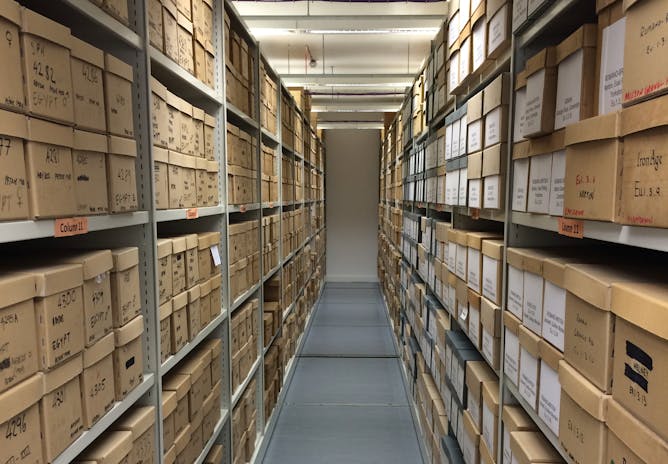Editor's note
|
|
The media has had a lot to say about how millennials spend their money. They’re not saving enough, the conventional wisdom goes, and they’re burdened with too much debt. But the truth is that millennials are actually more fiscally conservative than previous generations, writes University of South Carolina’s Jimmie Lenz. And some research suggests that the way they approach money is smart for the world they live in.
Research shows pregnancy discrimination is a significant problem for low-income women, who are often passed over for promotions or even fired for complaining. That’s because current law in most states doesn’t require employers to offer pregnancy-specific accommodations such as access to drinking water or help with heavy lifting, according to Jeannette Cox, a law professor at the University of Dayton. Cox argues pregnant women
shouldn’t have to choose between a job and the health of their babies.
Technological advances have made it possible for scientists to sequence DNA from ancient human remains. It’s an opportunity to learn directly about people who lived long ago, rather than from the objects they left behind. Anthropologists Elizabeth Sawchuck and Mary Prendergast write that respectful collaboration between geneticists and archaeologists is the way to advance the field ethically and explore our human heritage.
|
Aviva Rutkin
Big Data + Applied Mathematics Editor
|

|
|
Top stories
|

Millennials carry more student loan debt than previous generations.
Rawpixel.com/Shutterstock.com
Jimmie Lenz, University of South Carolina
Millennials are more financially conservative than their high debt balances might suggest.
|

Employers are required to accommodate the needs of pregnant women only in limited circumstances.
FotoAndalucia/Shutterstock.com
Jeannette Cox, University of Dayton
In most states, employers aren't required to accommodate the unique needs of pregnant women except in limited circumstances.
|

New technology means accessing new information from ancient human remains, some which have been in collections for decades.
Elizabeth Sawchuk
Elizabeth Sawchuk, Stony Brook University (The State University of New York); Mary Prendergast, Saint Louis University – Madrid
Ancient DNA allows scientists to learn directly from the remains of people from the past. As this new field takes off, researchers are figuring out how to ethically work with ancient samples and each other.
|
|
|
|
|
|
|
Politics + Society
|
-
Amanda Gouws, Stellenbosch University
The visibility of #MeToo makes it easy to overlook the very powerful campaigns against sexual violence in Africa.
-
Bérengère Stassin, Université de Lorraine
France's #MeToo backlash has revealed just how deeply rooted sexism is in the country. Disguised as flirtation or child's play, sexual harassment begins as early as elementary school.
|
|
Most read on site
|
-
Steve Calandrillo, University of Washington
Washington, California and Florida are mulling a permanent switch to DST. Proponents say that doing so could improve health, save energy and prevent crime.
-
Deepa Burman, University of Pittsburgh; Hiren Muzumdar, University of Pittsburgh
One of the most dreaded times of the year occurs this weekend, when Americans spring forward - and lose an hour of sleep in so doing. Two doctors who are sleep specialists offer some survival tips.
-
David Levari, Harvard University
It's a psychological quirk that when something becomes rarer, people may spot it in more places than ever. What is the 'concept creep' that lets context change how we categorize the world around us?
|
|
|
|
| |
| |
|
|